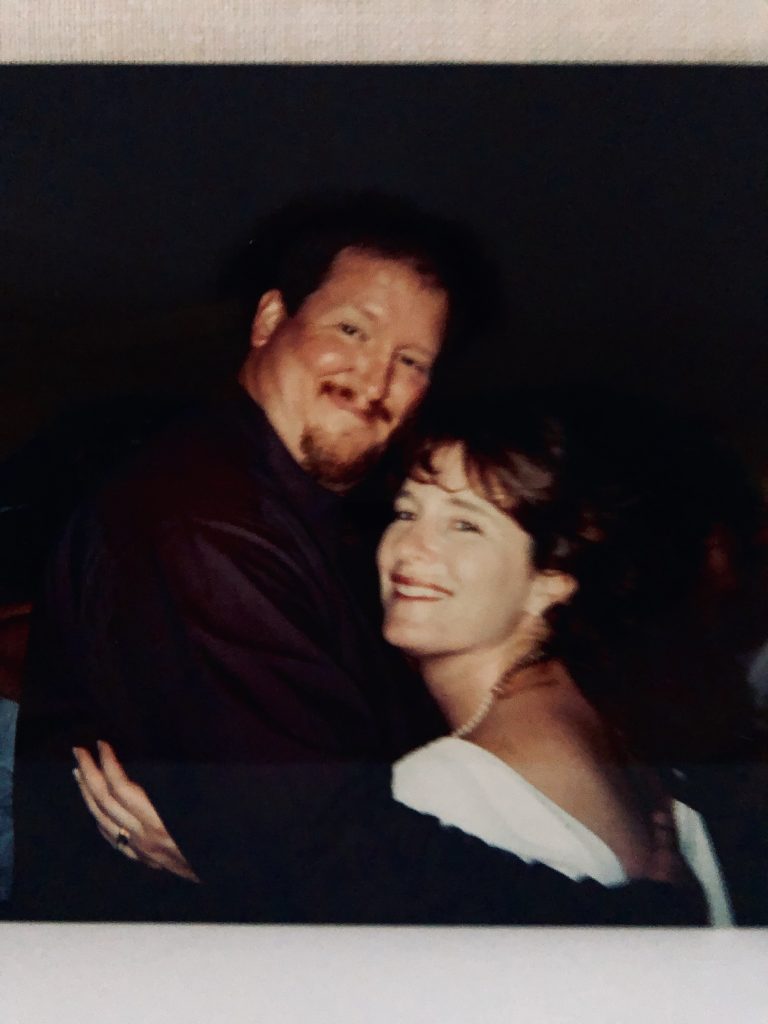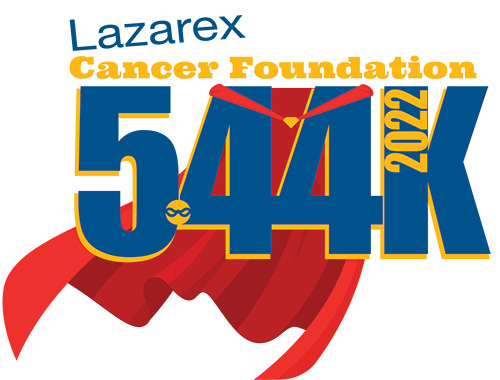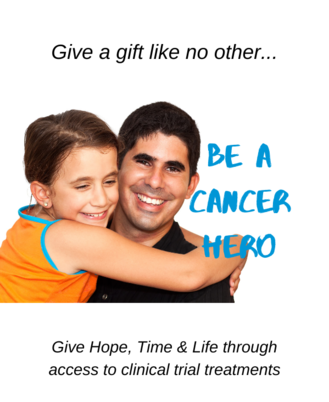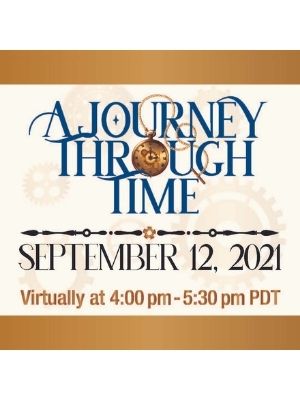By Dana Dornsife
It all started the day doctors told my brother in law Mike there was little they could do. I knew they hadn’t done everything. They hadn’t suggested a clinical trial.
So, I started searching. And I found one.

Mike was dying of pancreatic cancer – he had three months to live. But I found a clinical trial for him that offered hope. The catch? Getting the treatment would mean he’d have to travel- and it wouldn’t be cheap. He and my sister Erin had spent most of their life savings fighting his cancer, so they had little left for the required monthly airfare, hotel stays and myriad taxi rides. Fortunately for them, our family had the resources to cover the expenses.
When the clinical trial started working and Mike was feeling well enough to play sports again with his kids and celebrate life, his friends from the hospital begged to know his secret. Mike would say simply, “call my sister in law, she’ll help you find a clinical trial.” That was 2004. The phone immediately started ringing and it hasn’t stopped.
As the calls picked up two things became painfully clear: cancer patients need help exploring the possibilities in clinical trials, and once they find opportunities, most also need help with travel expenses. A patient can find a lifeline, but it doesn’t always mean they can get to it.
I also discovered the truth about the abysmally low enrollment in clinical trials. According to current statistics, only five percent of cancer patients enroll in clinical trials in the US and according to the FDA, a fraction of those are minorities. Pharmaceutical companies are desperate to get patients enrolled, but it’s not happening. Why? Many patients simply don’t know about clinical trials, but one of the biggest barriers are the travel costs.
The fact is, without patients, clinical trials fail, and potentially promising new drugs never make it to market. In fact, more than half of all clinical trials in the US fail because of low patient enrollment. With this realization, I started Lazarex Cancer Foundation to bridge the gap between patients who need clinical trials and clinical trials who need patients.
To date we have helped nearly six thousand patients from all over the country. Many are still alive today and some are living cancer free against all odds thanks to the advanced treatment in clinical trials and the travel reimbursements that allowed them access. This includes 12 year old Brittani in Sacramento, whose only hope for survival from what doctors told her was terminal giant cell tumor was a regular flight to a clinical trial in Los Angeles. Her single working mom risked losing her job and her home. There’s Mike, who’s been traveling from Albuquerque to Denver once a month for more than 10 years to get his medication and do simple labs. The flights and hotel would send him into bankruptcy, but Lazarex was there for him. Meanwhile, a simple tank of gas and hospital parking fees stood between four year old Neveah in Sacramento and a cancer clinical trial in San Francisco to cure her of nerve cancer that was taking over her brain. Their stories are not uncommon. Today all of these patients are alive and thriving because Lazarex helped them with the travel costs so they could get to their treatment.
Lazarex is not only focused on day to day patient care, we are also changing the clinical trial landscape. Historically, financial reimbursement for participation in clinical trials had been discouraged. However, in cancer clinical trials it’s different. If a patient’s treatment doesn’t work, basically they will die. The fact is, no patient needs financial coercion to participate, they simply need the means to get there. With that clarification, we successfully fought for policy change at the FDA to allow for patient reimbursements without any red tape. We have also helped usher in legislation in five states thus far to creating a permissible environment for reimbursement in cancer clinical trials. We have created programs at the institutional level that are offering travel reimbursements the moment a patient enrolls in a clinical trial to help increase minority participation and improve retention. And we are engaging with minority communities in unprecedented ways to raise awareness and offer resources.
As for my brother in law, Mike, he lived another 19 months, thanks to his clinical trial. Precious time captured for his kids to remember him, to get back out on the ball field and coach them, and long enough for him to celebrate a few more family birthdays – time he otherwise would not have had. And because of Mike’s experience, thousands of cancer patients have gotten help…. And the phone keeps ringing.




